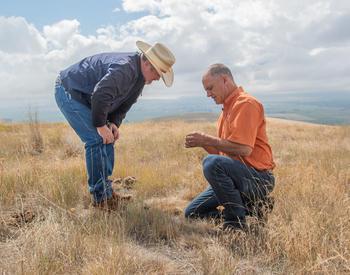We would like to understand why the Asian Carp is an invasive species. Does the Asian Carp otherwise known as the Silver Carp cause native Oregon species to be placed on the close to extinct list? What would be Oregon's worst catastrophe of having the Asian Carp in our waterways?
This Asian Carp fact sheet from the government of Canada is an excellent resource to address your questions on the science behind why Asian carps are an invasive species. The Asian carps impacting the Missouri and Mississippi river watersheds are not currently in the west. Instead, we have Grass carp.
Grass carp
Here are some facts about Grass carp:
- Grass carp are licensed through an Oregon State Department of Fisheries and Wildlife permitting system.
- Grass Carp pose a lower threat than Silver, Bighead and Black carp because they are macrophyte consumers (physically eat plants), versus the Silver and Bighead carps which do not physically eat plants.
- Instead, these other species feed by consuming plankton in large volumes simply through the process of water exchange through their gills through an anatomical adaptation called "gill rakers."
- Grass Carp do not have plankton gill rakers and must physically chew and eat food, a more involved process than feeding constantly when the gills open to pass water for gas exchange.
- Grass Carp pose less of a physical human risk because they do not jump high out of the water like the Asian carps.
Asian Carp
Here is more information about the invasive Asian carp:
- Asian carp must reproduce in river tributary junctions and side channels. These "trib junctions" are critical rearing habitat and refugia during floods for juvenile salmon and other anadromous fish.
- Given the reported densities of Asian carps in Midwest tributaries, Asian carp's heavy feeding on plankton will likely deplete and shift the guilds of plankton-feeding invertebrates that juvenile salmon need to grow.
- The impacts on the lower food chain would stress our juvenile salmon and steelhead populations as well as the productivity of our riverine systems throughout the greater Columbia River watersheds.
- Asian carp will likely have a lower risk of establishment in our high-gradient coastal systems.


















